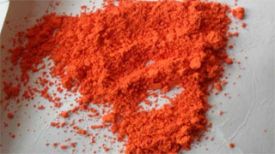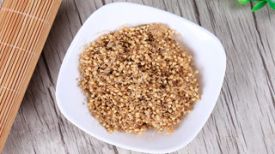Drug Name: Lotus Seed
Nickname: Lotus Meat, Lotus Rice
Source: Annotations to the Compendium of Materia Medica
Classification: astringent drugs
Origin: Produced in most regions, mainly in Hunan, Fujian, and Hubei provinces
Taste: Mild in nature, dry and astringent in taste
Guijing: Guixin, Spleen, Kidney Meridian
Effect: Consolidate essence and stop menstruation, nourish spleen and stop diarrhea, benefit kidney and nourish heart
Indications: Spleen deficiency, diarrhea, nocturnal emission, vaginal discharge, palpitations, insomnia
Character identification
This product is slightly elliptical or spherical in shape, with a length of 1.2-1.8cm and a diameter of 0.8-1.4cm. The surface is light yellow brown to reddish brown, with fine longitudinal stripes and wider veins. One end has a papillary protrusion in the center, dark brown in color, with many cracks and slightly sunken edges. Hard texture, thin seed coat, not easy to peel off, with 2 yellow white cotyledons, thick, with gaps in the middle, and green lotus seed heart. Odorless, sweet and slightly astringent in taste; The lotus seed has a bitter taste.
Usage&Taboos
Internal administration: decoction, 6-15 grams; Or enter the pill and disperse.
Taboos: Those with bloating and dry stools should avoid taking it.
chemical composition
This product contains high amounts of starch and raffinose, protein 16.6%, fat 2.0%, carbohydrates 62%, calcium 0.089%, phosphorus 0.285%, and iron 0.0064%. The pods contain lotus leaf alkaloids, N-demethyl lotus leaf alkaloids, oxidized yellow heart tree alkaloids, and N-demethylated poppy alkaloids. Oxidized Huangxinshu alkaloid has the ability to inhibit nasopharyngeal carcinoma.
pharmacological action
The oxidized Huangxinshu alkaloids contained in lotus seeds have an inhibitory effect on nasopharyngeal carcinoma. The lotus seed alkaloids and isoleucine contained in lotus seeds have significant effects. The lotus seed alkaloids extracted from lotus seeds have a strong and long-lasting antihypertensive effect, which has a certain effect on the treatment of hypertension.
Chinese herbal formula
1. Treating dysentery with poor diet, commonly known as silent mouth dysentery: one or two fresh lotus meat, five coins of Huanglian, and five coins of ginseng. Boil in water until thick, fine and savory. (The Classic of Materia Medica)
2. Treating postpartum stomach cold, cough, nausea, or abdominal distension: half of the stone lotus meat, one or two white poria cocos, five cloves, and the upper part is minced. Take two coins per serving, and adjust it with ginger soup or rice drink at any time. Take it three times a day. (Shi Lian San in "The Good Recipe for Women")
Ancient book records
Diannan Bencao: Clearing the Heart and Relieving Fever.
The Compendium of Materia Medica: Jiaoxin Kidney, Thickening Intestine and Stomach, Consolidating Essence and Qi, Strengthening Muscles and Bones, Supplementing Deficiency and Damage, Benefiting Ears and Eyes, Eliminating Cold and Dampness, Stopping Spleen and Prolonged Dysentery, Red and White Turbidity, and Various Blood Diseases in Women.
The Compendium of the Medical Forest: Lotus seeds, chewed on the skin and removed from the heart, are the most beneficial for people. They can eliminate annoyance, quench thirst, astringent essence, harmonize blood, stop nocturnal emissions, and regulate cold and heat. Cooking only treats spleen diarrhea, chronic dysentery, and thick intestines and stomach, while reducing the function of heart and kidney. If the skin is removed, there will be no astringency, and its function is only to nourish the spleen.
Traditional Chinese Medicine - Lotus Seed
Release time:2024-06-08 11:33:34
Reading:216
Word Count:3597
Subscribe to email


